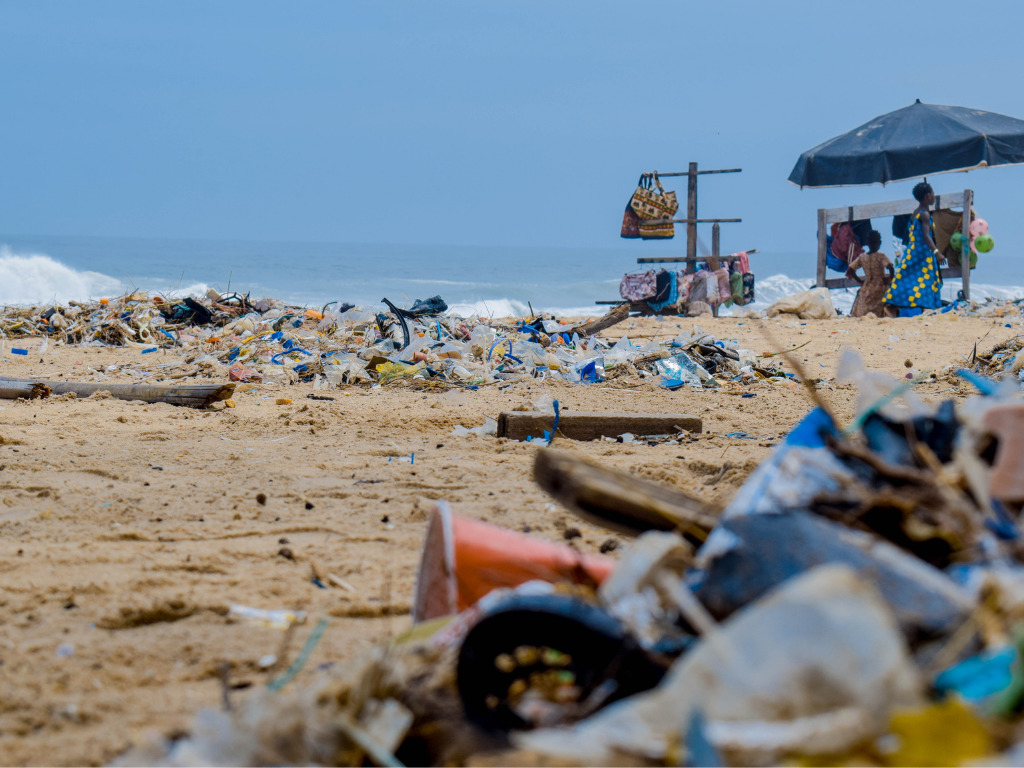Procter & Gamble, PepsiCo, Unilever Are Developing ‘False’ Solutions To Plastic Pollution, Reveals Report
4 Mins Read
The non-profit Break Free From Plastic movement tracked and analysed projects of seven leading companies and eight alliances which claimed to have effective solutions in place to tackle the plastic crisis. However, its report highlighted that these major FMCG companies have projects that do little to nothing as part of their response.
Titled ‘Missing the Mark: Unveiling Corporate False Solutions to the Plastic Pollution Crisis’, the report looks at 265 corporate projects to understand whether companies are giving the much-needed attention to solutions like the reuse system, compared to false solutions.
Companies and Alliances With False Solutions
It looked closely at the initiatives of Procter & Gamble, PepsiCo, Mars, Inc., Mondelez International, Nestlé, Unilever and the Coca-Cola Company. This list is similar to the names in the top polluters of the world global audit conducted by the Break Free From Plastic movement.
Read: Earth Island Sues Coca-Cola Over Greenwashing Claims & False Advertisement
Experts stated that out of the 265 projects running from 2018 to April 2021, only 39 were invested in reuse. A shocking 226 of these projects were labelled as false solutions to the plastic pollution crisis.
Ranked from absolute worst to least worst, Procter & Gamble tops the list with Unilever at the bottom, but still a top offender.
Corporate campaigns coordinator of Break Free From Plastic, Emma Priestland, said that despite claims that the world’s top polluting companies are combating plastic pollution, the evidence to understand if they are serious is in the numbers. “These companies are pursuing false solutions that range from potentially damaging at worst, and simple wishful thinking, at best,” she said in a statement. “What the findings reveal is that only 15% of the projects are proven solutions like reuse, refill, and alternative delivery systems. Instead these companies are investing in projects that do little to eliminate single-use plastics.”
From the FMCG companies, 214 direct projects were analysed with a total of 38 reuse pilots and projects, along with 176 false solution projects.
These companies are pursuing false solutions that range from potentially damaging at worst, and simple wishful thinking, at best. What the findings reveal is that only 15% of the projects are proven solutions like reuse, refill, and alternative delivery systems
Emma Priestland, corporate campaigns coordinator of Break Free From Plastic
Out of the 8 alliances that the FMCGs are a part of, 51 projects in total were assessed. The alliances and group initiatives included are Alliance to End Plastic Waste, Circulate Capital, Closed Loop Partners, PREVENT Waste Alliance, Sustainable Packaging Coalition, American Beverage Association, Materials Recovery for the Future, and PRAISE (Packaging and Recycling Association for Indonesia Sustainable Environment).
Shockingly only 1 was reuse related whereas the remaining 50 were false solutions.
End Dependency On Plastics
Global project leader of Greenpeace U.S., Graham Forbes said that the report is just another example of how leading brands keep failing to prioritize reuse and make genuine strides to reduce throwaway packaging. “It is clear that reuse-based alternatives are essential for these companies to remain viable in a climate-safe future and end their contributions to the plastic pollution crisis. Instead of working with the fossil fuel industry to promote false solutions, these companies must end their reliance on single-use plastics and scale-up systems of reuse globally.”
With plastic production predicted to quadruple by 2050, much of this is being fuelled by FMCG companies and their single-use packaging. Since the 1950s, only 9% of plastic produced has been actually recycled and in single-use plastic, those that can be recycled, which are very few, have a huge economical cost.
Read: John Oliver’s HBO Show Takes On Plastic Pollution & Industry ‘Lies’ Behind Global Recycling Crisis
Instead of working with the fossil fuel industry to promote false solutions, these companies must end their reliance on single-use plastics and scale-up systems of reuse globally
Graham Forbes, global project leader of Greenpeace U.S.
Part of Nexus3 Foundation in Indonesia and a member of the expert panel which analyzed the corporations’ initiatives, Yuyun Ismawati said that in Asia, several companies and alliances are coming up with false solutions. “Chemical recycling creates new toxic waste; plastic to fuel or Refuse Derived Fuel is contrary to the circular economy, and plastic offsetting is upsetting because it fails to answer the plastic crisis. These types of initiatives show a lack of ambition and prioritization of alternative product delivery methods. Multinational corporations have more than enough resources to invest in new delivery systems, reuse, refill and redesign, that would allow for a dramatic reduction in the use of single-use plastics. They should change the way of doing business and stop greenwashing.”
Read: The War On Plastic: Are We Missing The Bigger Picture? Stigmatisation Vs. Deinstitutionalisation
In a separate report, only twenty companies were found to be responsible for more than half of the single-use plastics which are polluting the earth. The findings further showed that the top polluting businesses were petrochemical firms with ExxonMobil first in the line, followed by U.S. firm Dow and Chinese oil and gas giant Sinopec.
Read the full report here.
Lead image courtesy of Lucien Wanda/Pexels.



